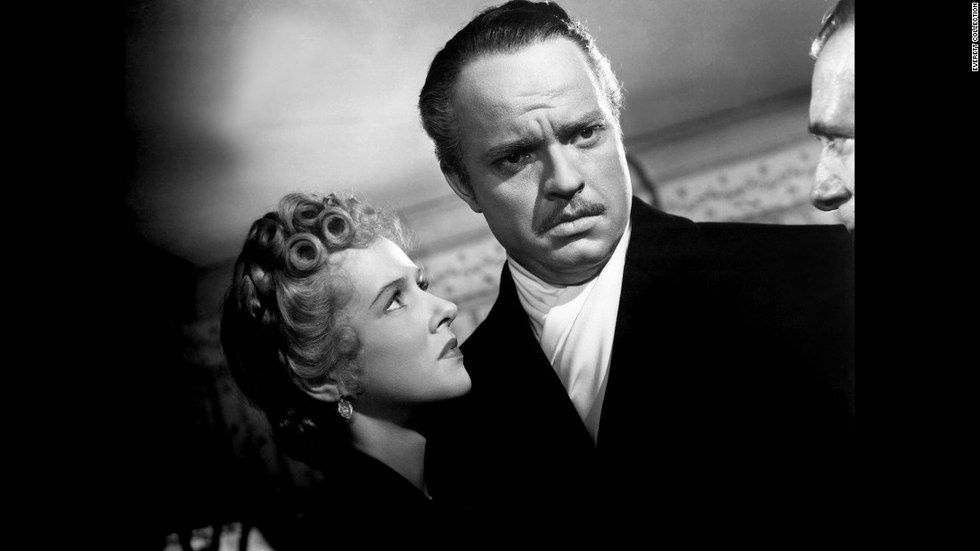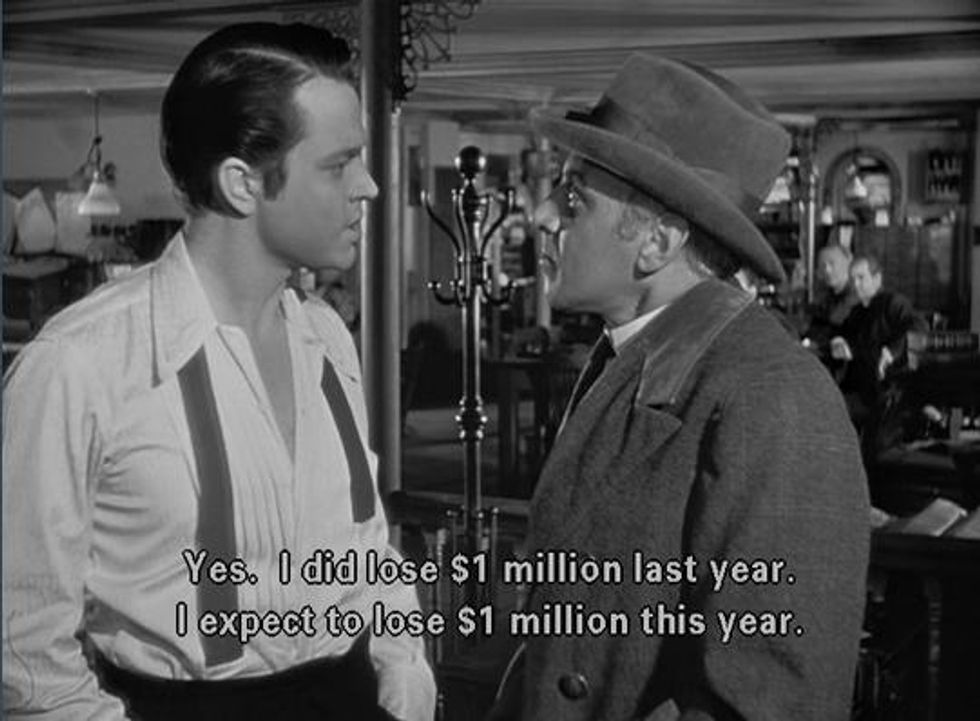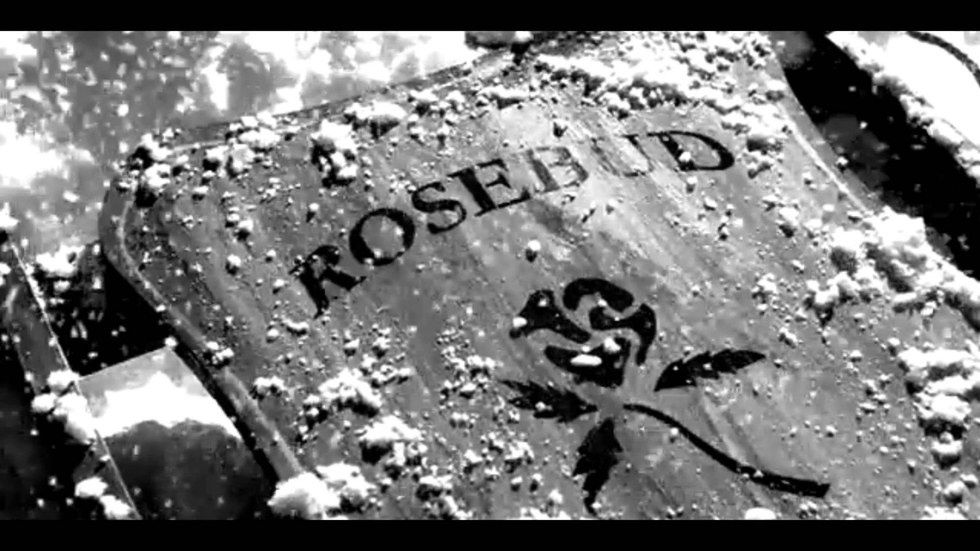Mr. Charles Kane once said, “I don’t think there’s one word that can describe a man’s life,” and I believe this to be true because a man’s life is long and each phase or obstacle changes him. Kane was a man that had the whole world, but lost everything. A man worth $60 million, but what good is that when you find no purpose in life to fill the void that internally consumes you? Kane is seen through different lenses by each person who cared about him throughout the movie, exhibiting different traits and characteristics. Kane is portrayed as a character who is always surrounded by people, but in reality, he is lonely. His loneliness doesn’t allow him to fully mature. His immaturity makes Kane yearn for control and power over his life. The power he longs for blinds him with greed, causing him to push away the people he loves and ultimately leads to his lonesome demise.
Kane was only eight years old when his world completely changed. Some say his world changed for the better, others say for the worst. It seems, however, that no matter what the outcome, Kane would always be lonely. Kane never had friends and the opening scene of him playing alone in the snow as a child exemplified the fact that he had no social interaction other than with his parents. This isn’t the last time we see Kane lonely, though. He spends Christmas Day surrounded by Thatcher and his henchmen, but there is no child in sight. Kane’s face longs for affection and attention which the young child isn’t receiving. Was he always this lonely? Did the poor circumstances of his childhood cause him to be this way? Or perhaps maybe it was a coping mechanism in order to keep moving forward. Kane turns to love to fill his void of loneliness, but even that fails him. Kane’s first marriage to Emily starts off happy but slowly disintegrates, ending with the death of his wife and son. In part, the horrible car accident is his fault. If it wasn’t for his selfish actions and impulsive behavior, they would still be a family. His second wife leaves him in shambles, making him realize that perhaps people only loved him for what he could offer, and not for who he was.
Although lonely, Kane was forced to grow up quickly leaving no room for him to fully mature. He was kicked out of several schools throughout his youth. Conceivably, this could be because he was an outcast or maybe it was his rebellious behavior and immaturity causing it. For someone so rich, getting kicked out shouldn’t be a problem. Finding another school or bribing the administration could be feasible solutions, but it goes to show that he was careless and immature. A normal person would be mindful of how they spent their money, but Kane did the contrary. Kane buys extravagant and expensive sculptures, art and fancy cars. These things will never be of any use to him. They will just sit and collect dust. Kane portrays that although he is an adult, he is still a kid when he says, “I think it will be fun to run a newspaper,” thus driving Thatcher mad with rage. The man is 25 years old and acting like a five-year -old boy at a candy store. In reality, he’s burdened with issues and an outrageous fortune, but he only desires one thing, a newspaper. Kane pays no mind to the words of wisdom and advice Thatcher gives him. In fact, he only responds back like a spoiled child when Thatcher warns him that the paper is causing him to lose money. Kane responds saying, “I did lose a million dollars last year. I expect to lose a million dollars this year. I expect to lose a million dollars next year. You know, Mr. Thatcher, at the rate of a million dollars a year, I'll have to close this place in... 60 years". If Kane valued his money, he would have invested elsewhere, doubling his fortune, rather than wasting it away, but it goes to show that Kane never really values money or the life it ha given him.
While immature, Kane yearns to have power and control over his life and the people in it. Kane was first seen exerting power when he takes over the newspaper. The New York Inquirer goes from having horrible ratings to being the best in the business. Kane hires the best staff and the paper becomes the voice of the people through his eyes. He craves power and control so incredibly much that he decides to run for governor, but that was short lived when a scandalous newspaper article reveals that “Candidate Kane is Caught in Love Nest With Singer.” His loss proves that his power games should come to an end, but this stubborn man just doesn’t learn. The scandal breaks his family apart and so he again turned to find love in the arms of, Susan Alexander. To show that he hasn’t lost the race and the amount of power and money he obtains, he builds Susan an opera house. Although Susan has told him several times that she doesn’t have the voice to be an opera singer, Kane forces her to perform. The macho bravado he exerts over Susan leads her to attempt suicide. Kane fails once again in his control for power and situations in life. While Susan may not have died, he does end up losing her because of immature and selfish reasons.
Kane was a man who had everything and lost it all. His lack of maturity, loneliness and power struggle are some of the few things that lead to his demise. But as every great story goes, all good things must come to an end, however Kane’s ending wasn’t so pretty. His last word, “Rosebud,” was uttered alone in the silence of a dark room. The importance of that name being the very thing everything comes back to, his childhood. If things never turned out the way they did, Kane’s story would be completely different and in the end, he could have been a really great man.
Author's note: I highly recommend watching this amazing film staring and directed by Orson Welles. Although it is in black and white, it was one of the first films to change the world of cinematography as we know it. It explored and implemented different filming techniques and new camera angles, which without them, the movies we love today would not have be the same. Its only two hours long but a revolutionary film, especially for its time period.






















